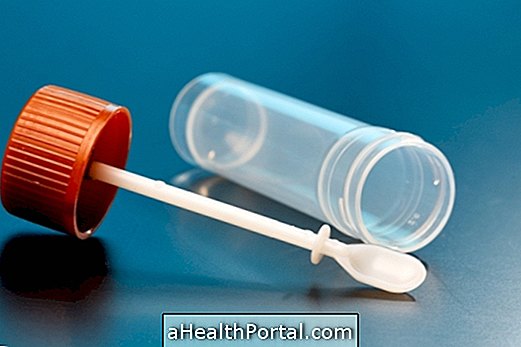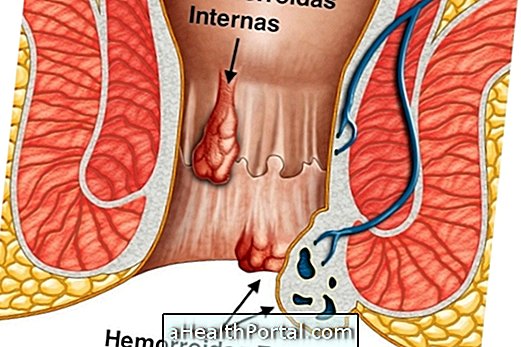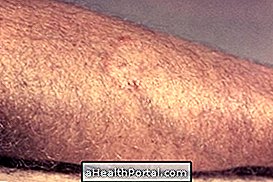The fecal occult blood test, also known as occult blood test, is a test that evaluates the presence of small amounts of blood in the stool that may not be visible to the naked eye and therefore serves to detect the presence of small bleeding in the digestive tract that may indicate ulcers, colitis, or even colon cancer.
Generally, stool collection for this type of examination is requested by the physician after age 40 or when there is a history of colon cancer in the family. In addition, the examination may also be done to aid in the diagnosis of inflammatory bowel problems, such as Crohn's disease or colitis, for example. See how to know if there is blood in the stool.

Main causes of occult blood in stool
If the test results are positive, there are several causes for the presence of blood in the stool, which include:
- Benign polyps in the gut;
- Hemorrhoids;
- Ulcers in the stomach or duodenum;
- Ulcerative colitis;
- Crohn's disease;
- Diverticular disease;
- Colorectal cancer.
Thus, in order to identify the correct cause of the presence of blood in the stool, it is common for the physician to ask for a colonoscopy or endoscopy after the occult blood test, especially when the bleeding is not caused by hemorrhoids. These two tests consist of the introduction of a thin tube with a small camera at the tip, which allows the inside of the intestine and stomach to be seen to identify possible lesions, making diagnosis easier. Understand better how the colonoscopy is done.
See even more about the leading causes of blood in the stool.
How should the test be prepared?
Stool collection for the hidden blood test is usually done for 3 days, during which time it is recommended to take some dietary care, avoiding eating foods such as radish, cauliflower, broccoli, beets, beans, peas, lentils, chickpeas, corn, olives, peanuts, spinach or apples.
Also, avoid taking drugs that irritate the stomach, such as anti-inflammatories or aspirin, for example, as they can cause bleeding and result in a false positive. It is also recommended that the collection be done not less than 3 days after the menstrual period and not when bleeding gums or nose has been found, since the person can swallow the blood, for example. If the collection is done in any of these situations, it is important to inform the laboratory so that it does not interfere with the interpretation of the result.
How to interpret the test result
Possible results for the fecal occult blood test are:
- Occult blood in the stool negative: it is not possible to identify occult blood in the stool, and the risk of having a gastrointestinal problem is low;
- Positive fecal occult blood: Indicates the presence of occult blood in the stool and, therefore, a colonoscopy is indicated to identify the cause of the bleeding and to initiate appropriate treatment.
False-positive results are those in which the presence of blood is detected by the test but does not represent the patient's condition. This type of result can occur in people who do not prepare properly for diet, have had gingival or nasal bleeding, used medicines that cause irritation of the gastric mucosa, or have collected them a few days after the menstrual period.
In some cases of negative results, the doctor may ask for a colonoscopy if the patient is at high risk of developing colon cancer to ensure that there are no changes because, although rare, there may be cancer without bleeding.
See other problems that can cause stool color changes in the stool.
























